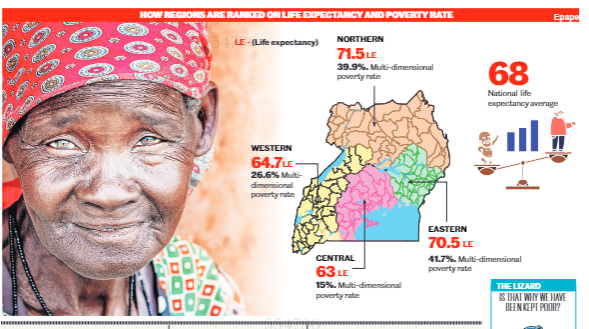Breaking the silence: Empowering communities to take control of diabetes

Health workers check the sugar levels of people during Masaka Diabetes day recently. Photo | File
What you need to know:
- In Uganda, especially in rural Uganda and the elderly populace, the diabetes epidemic presents daunting hurdles
Commemorated on November 14 every year, World Diabetes Day unites global leaders, medical professionals, advocates, and communities to raise awareness and promote action against the growing epidemic. The 2024-2026 theme, "Diabetes and Well-Being," emphasises the importance of holistic self-care and mental health for persons living with diabetes.
The alarming reality
Diabetes is a chronic metabolic disorder affecting 537 million people worldwide and an estimated 716,000 cases in adults in Uganda, with about 89 per cent of Ugandans with diabetes neither on medication nor aware of their status, according to the International Diabetes Federation. This continues to pose significant health challenges to the country.
Notably, millions of people with diabetes face several struggles managing their condition in their daily lives, with diabetes care often focusing only on blood sugar—aspects that leave many overwhelmed. According to the International Diabetes Federation, 36 per cent of people with diabetes experience distress, 63 per cent of people with diabetes say that the fear of developing diabetes-related complications affects their well-being, and 28 per cent of people with diabetes find it hard to remain positive about their condition.
The voice of resilience
Behind the statistics, there are faces and stories of individuals who embody resilience in the face of diabetes.
Richard Alecho recalls his journey: "Before my diagnosis, I always felt tired even after getting enough rest; frequent urination and drastic weight loss drove me to seek medical attention. At first. I dismissed it as stress and exhaustion from work; however, a visit to the hospital uncovered I had diabetes. A discovery that is accompanied by a change in one's lifestyle."
"Living with diabetes for close to six years has taken a toll on my emotional well-being. Initially, I felt overwhelmed and anxious. It is stressful having to maintain normal blood sugar levels, and I have experienced bouts of depression, especially when complications arose, but I have figured out how to adapt through mindfulness and connecting with my family and friends for social support." Eunice Nabuzaale said. "Social support from loved ones and healthcare professionals is very crucial in managing diabetes," Eunice added.
In Uganda, especially in rural Uganda and the elderly populace, the diabetes epidemic presents daunting hurdles. Wilson Wepukulu, aged 92, who was recently diagnosed with diabetes, stated, "The cost of medication and supplies is crippling, and yet I have a limited pension. To access quality healthcare, I have to travel long distances, which is costly and exhausting. I depend mostly on my children for healthcare and social support."
His wife, who wishes to remain anonymous, shares her experience caring for Wilson. "Initially, I used to worry a lot about his health. There are times when I feel stressed, but I find comfort in God, family, and friends."
Mercy Nanyonga , though diagnosed with type 1 diabetes, stated that with a strong support system and the right education about this disorder, one can manage the condition and live a fulfilling life.
Healthcare experts shared their expertise and insights on diabetes management. Dr Nabuzaale Annet, a Senior Clinical Officer, In-charge of Diabetes, at Bugiri Hospital, highlights that Uganda's dietary scene presents considerable difficulties for diabetes management.
"High carbohydrate and high sugar diets exacerbate blood sugar fluctuations, and yet to most Ugandans, these types of foods are readily and financially available and convenient. The limited access to balanced and healthy nutrition hinders effective management," she added.
"Exercise, or physical activity, is a crucial component to the medical-lifestyle therapy for persons living with diabetes as it improves insulin sensitivity, lowers blood sugar levels, and boosts one's mental wellbeing," says Betty Masaabah Mutuwa , Senior Clinical Officer, Ministry of Defence and Veteran Affairs (MoDVA), Magamaga Barracks.
She recommended that persons living with diabetes should undertake at least 150 minutes of physical activity per week, as per the World Health Organisation guidelines. "I recommend Starting Small and Staying Active." Dr. Mutuwa stated. However, she further cautioned that before setting out for a particular routine, one living with diabetes must consult their healthcare professional for personalised guidance.
As Uganda joins the global community to commemorate World Diabetes Day, the call to action is clear. A call re-echoed by Dr Charles Oyoo Akiya, Commissioner of Non-Communicable Diseases, in his recent address at the International Conference on Pen-Plus in Africa 2024, wherein he urged Ugandans to always go for checkups for non-communicable diseases, highlighting that the government established free centres for this purpose. He stressed that this should be done routinely because, once detected early, you can avoid the risk of progression to a severe form.




